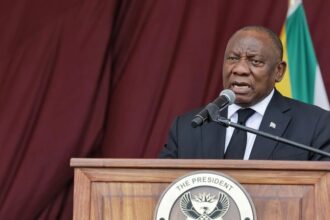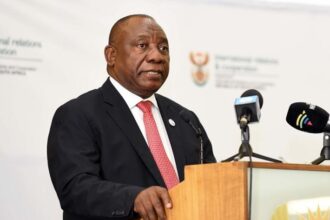Basic Education Minister Siviwe Gwarube has confirmed the readiness of the Basic Education Laws Amendment (Bela) Act for rollout. However, clauses 4 and 5 remain on hold, as President Cyril Ramaphosa extended consultations on these contentious parts for three months. Speaking before the Western Cape Legislature on 6 November, Gwarube said, “The Bela Act, as it stands, is essentially ready for implementation with the exception of clauses 4 and 5. As a department, we’ve already started implementing the Bela Act since it has been signed into law.”
Implementation Across Provinces
Gwarube detailed that her department has started engaging provincial education sectors, setting up workshops to help them prepare for the new policies under the Bela Act. “We are ready to implement the provisions of the Bela Act, excluding clauses 4 and 5, which remain subject to consultation,” Gwarube added, stressing that the Ministry is awaiting guidance from the Presidency on implementing these clauses.
Basic Education Director-General Hubert Mweli discussed financial aspects linked to the Act, especially regarding Grade R. Under the Bela Act, Grade R becomes a compulsory school starting age, aligning it with Grade 1 in terms of funding requirements. “The funding issue lies in bringing parity between Grade R and other grades,” Mweli noted, highlighting that learners in private institutions will not benefit from this change.
Key Changes in the Bela Act
The Bela Act introduces sweeping reforms, including banning corporal punishment with penalties for offenders, and mandating Grade R as the entry age for school. Parents and guardians will face consequences if children fail to attend school. These changes aim to combat high dropout rates, promote better governance, and enhance teaching standards.
The Act also revises how school language and admissions policies are set. School Governing Bodies (SGBs) have traditionally determined these policies, but clause 4 now enables provincial education heads to override language policies, while clause 5 gives them control over admissions policies.
Protests Over Clauses 4 and 5
The clauses that shift power away from SGBs stirred a wave of protests. On Tuesday, thousands of civil society members gathered in Pretoria, including Solidarity and AfriForum. Protesters argued that clauses 4 and 5 threaten the rights of linguistic and cultural communities, specifically targeting mother-tongue education. The protest saw leaders like DA’s John Steenhuisen, Patriotic Alliance’s Gayton McKenzie, and FF Plus’s Pieter Groenewald vocalising their opposition.
Lukhanyo Vangqa, Gwarube’s spokesperson, clarified that the protests were directed at President Ramaphosa rather than the minister’s office. In response, the ANC’s basic education study group urged immediate promulgation of the full Act, stating, “The notion that the Act infringes on mother-tongue education rights is disinformation. Instead, the Bela Act encourages schools to accommodate multiple languages.”
Ongoing Dialogue on the Act
Solidarity responded to the protests, advocating for continued consultations. “Good progress was made over the past two months in talks involving the Solidarity Movement, AfriForum, and the ANC. These talks indicate potential common ground and an opportunity for agreement,” Solidarity’s statement read.
Notably, Minister Gwarube, who did not attend the Bela Bill signing, voiced concerns and previously called for the Bill to be sent back to Parliament for reconsideration under Section 79 of the Constitution. Whether the Act’s full provisions will eventually be implemented remains a point of debate as consultations progress.











